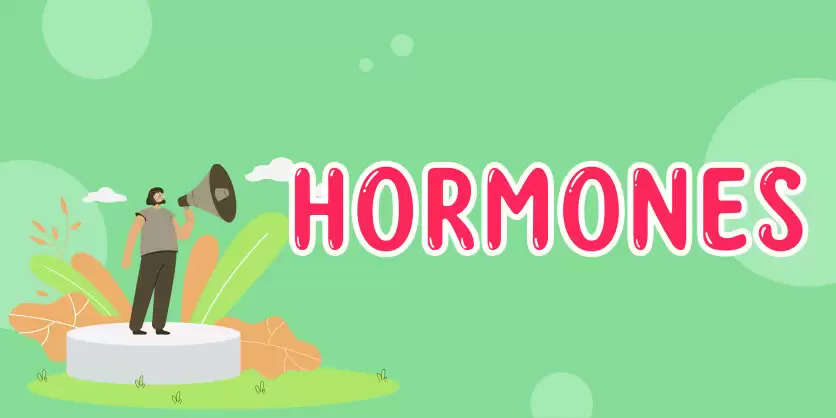Oestrogen Level: Boost Your Oestrogen Levels With These Foods

Oestrogen, an essential hormone, is commonly linked to individuals assigned female at birth (AFAB), which includes cisgender women, transgender men, and nonbinary individuals with vaginas. Alongside progesterone, oestrogen significantly influences reproductive well-being. Oestrogen contributes to the development of secondary sexual characteristics (such as breasts and hips), regulates menstruation, facilitates pregnancy, and affects menopause.
Moreover, oestrogen plays a crucial role in various other bodily systems. While AFAB individuals have higher levels of oestrogen, it is important to note that all genders produce this hormone.
Types of oestrogen
There are three primary types of oestrogen:
-
Estrone (E1): This is the main form of oestrogen produced by the body after menopause.
-
Estradiol (E2): This is the predominant form of oestrogen in the body during reproductive years. It is considered the most potent type of oestrogen.
-
Estriol (E3): This form of oestrogen is primarily present during pregnancy.
Insufficient levels of oestrogen can have negative effects on our well-being. Factors such as menopause, polycystic ovary syndrome (PCOS), and certain medical treatments can influence oestrogen levels in the body. Fortunately, a balanced diet can help address these concerns. Experts suggest that incorporating specific superfoods into your daily meals can naturally boost oestrogen levels in the body. These include:
Flaxseeds
Flaxseeds are well known as a top-notch natural source for enhancing oestrogen levels in the body. These small seeds are highly abundant in lignans, a form of phytoestrogen that assists in promoting oestrogen metabolism. Numerous studies have demonstrated that incorporating flax seeds into daily consumption may potentially decrease the likelihood of postmenopausal women developing breast cancer.
Soy products
Soy products are rich in isoflavones, a type of phytoestrogen known to potentially enhance oestrogen levels. If you're dealing with low oestrogen levels, it is advisable to incorporate soy-based foods into your diet, such as soy milk, soy yoghurt, tofu, and soy wheat flour. These products not only offer the benefit of boosting oestrogen but also contribute to replenishing protein levels in the body.
Sesame seeds
Similar to flaxseeds, sesame seeds are also classified as "oestrogen-boosting foods" due to their notable lignan content. Consistent intake of sesame seeds has been shown to potentially elevate oestrogen levels in postmenopausal women, according to studies.
Chickpeas
Chickpeas, which are legumes, are recognized as a valuable source of phytoestrogens. Incorporating hummus into your diet can be a favourable approach to reap the advantages of chickpeas, potentially boosting oestrogen levels. Moreover, other legumes such as red beans, green peas, and black-eyed peas are also regarded as oestrogen-rich options.
Dairy products
Dairy products, including those with full-fat content, naturally contain trace amounts of oestrogen and progesterone. To potentially support oestrogen levels, it is recommended to include dairy products like cheese, milk, and yoghurt in your diet. Studies suggest that whole milk may have higher concentrations of fat-soluble oestrogen compared to skim milk.
Black cohosh
It is a traditional herb used by Native Americans and has a long history of being used for various ailments, including menopause and menstrual problems. Recent studies suggest that black cohosh contains compounds that can activate oestrogen receptors.
Chasteberry
It is another traditional herbal remedy that is primarily recognized for its effectiveness in treating gynaecological conditions like PMS.
B vitamins
They have a significant impact on the production and activation of oestrogen within the body. Insufficient levels of these vitamins can result in decreased oestrogen levels.
Vitamin D serves as a hormone within the body, and a study has shown that it collaborates with oestrogen to lower the chances of cardiovascular disease. This connection arises from the role of vitamin D in oestrogen production, suggesting that vitamin D supplementation may be advantageous for women with low oestrogen levels.
Boron
Boron, a trace mineral, plays various roles in the body. It has been studied for its potential to decrease the risk of specific types of cancer. Additionally, boron is essential for the metabolism of testosterone and oestrogen, the sex hormones. Researchers hypothesise that boron affects oestrogen receptors, enabling the body to use available oestrogen more effectively.
Dong qua
It is a traditional Chinese medicine and is often used to alleviate menopause symptoms. Similar to the various other herbal supplements, dong quai contains compounds that act as phytoestrogens.
Conclusion
Now that you have knowledge about oestrogen-rich foods, it is recommended to include them in your diet. Nevertheless, it's crucial to understand that individual responses to food may differ. It is advised to seek guidance from a medical professional or a nutritionist prior to modifying your diet.
Disclaimer: The above content is for informational purposes only and should not be used as a substitute for the advice of a qualified physician or doctor. The Company does not vouch for or endorse any of the above content, and disclaims any and all warranties, express or implied, relating to the same..png)